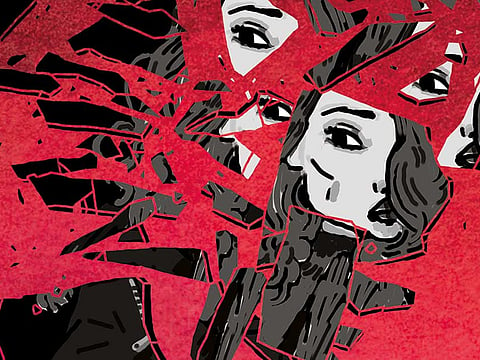A cerebral crime thriller
UK-based Romanian authors first novel in English is crying out to be turned into a David Lynch film

The Book of Mirrors
By E.O. Chirovici, Century, 336 pages, £12.99
Is there such a thing as a truly reliable witness? It may undermine our whole judicial system to deny it. But put any two people together to discuss some shared experience and they soon start sounding like Maurice Chevalier and Hermione Gingold singing I Remember It Well: “We dined with friends” / “We dined alone” / “A tenor sang” / “A baritone”
An honest witness is of limited use if what he or she believes is based on a false memory. This has been the theme of some of the greatest crime novels, notably Agatha Christie’s atypical masterpiece Five Little Pigs (1942), in which Poirot must deduce from the psychology of his suspects not only which of them is lying but why the others might have misremembered or misinterpreted the events surrounding a long-ago murder.
E.O. Chirovici’s new novel explores much the same territory. Poirot would have sympathised with the character who, contemplating the tangle of contradictory testimonies he has heard, is reminded of “the maze of distorting mirrors you used to find at carnivals when I was a kid — everything you saw when you went inside was both true and false at the same time”.
The central mystery concerns Joseph Wieder, a psychology professor at Princeton and media star, whose mission was to find a way to eliminate bad memories. “If there’s a big bunch of people who give themselves up to the surgeon’s knife for the sake of more attractive breasts, noses and butts, then what could be wrong with cosmetic surgery for the memory?”
But his pursuit of the eternal sunshine of the spotless mind was brought to an abrupt end when he was bludgeoned to death in his home in 1987. Was the motive jealousy, revenge or something stranger? And was he really, as many people thought, “a kind of Prometheus who’d descended among mere mortals to share the secret of fire” — or a charlatan and plagiarist? The novel is divided into three parts.
In the first, set in the present day, a literary agent called Peter Katz is sent part of a manuscript by Richard Flynn, a former Princeton student who was employed by Wieder as a librarian, which professes to tell the true story behind the 30-year-old murder; inevitably, in a book called The Book of Mirrors, this book-within-a-book is also called The Book of Mirrors.
The second part of the novel is narrated by John Keller, a journalist hired by Katz to interview the other key players, whose testimonies throw doubt on some of Flynn’s claims. One is reminded of what an intimate act it is to read a first-person narrative: reading Flynn’s account and then seeing its veracity challenged is strangely disturbing, as though one had actually been lied to — the same effect achieved by last year’s hit mystery novel, His Bloody Project. The final section is told from the perspective of Roy Freeman, the cop who originally investigated the murder, now retired and seriously ill but trying to atone for a botched job with a little amateur detection. The other sleuths have failed because they are too easily seduced by narratives, but Freeman finally succeeds by fighting the seductive power of story, and turning Keller’s discoveries round another 180 degrees. Chirovici is a bestselling suspense novelist in his native Romania, but this is the first time he has written a book in English — it is expected, remarkably, to make him more than a million pounds, after a frantic bidding war between publishers last year. The book was inspired, he says, by a moment of sudden realisation that his strong memories of attending a footballer’s funeral as a child could not possibly be real.
As one might expect of an author not writing in his first language, the dialogue does not always sound convincing, but compared with most translations of foreign novels the book generally reads very well. In fact, what betrays the author most as a non-native speaker is his characters’ careful attention to the way they all talk, mulling over each other’s odd pronunciations like so many Henry Higginses. This is cerebral crime in the manner of Umberto Eco and Paul Auster, the sense of mystery underlined by repeated coincidences and weird echoes.
The characters are in no jeopardy, but readers will be spurred on to keep turning the pages by the feeling that the ending will reveal not just what the truth is, but what is Truth. The publishers no doubt hope it will be as successful as Joel Dicker’s The Truth About The Harry Quebert Affair, another European novelist’s exploration of murder in American academe. The Book of Mirrors is not as exciting on a superficial level as Dicker’s book but its pretensions to intellectual depth are certainly more justified. It would make a terrific film if a director could be found who knows how to weave a mystery without relying on hoary techniques of suspense: perhaps, if he could be resurrected, the David Lynch of 25 years ago. With Maurice Chevalier on the soundtrack, naturally.
–The Telegraph Group Limited, London 2017


